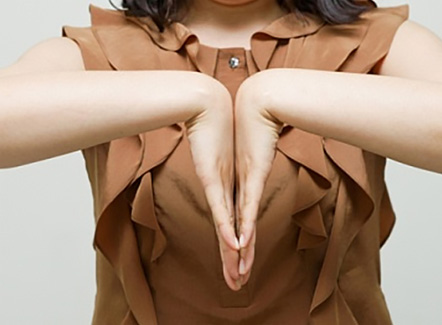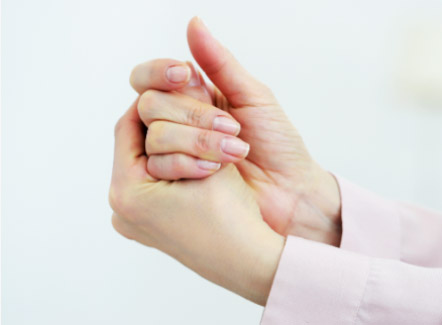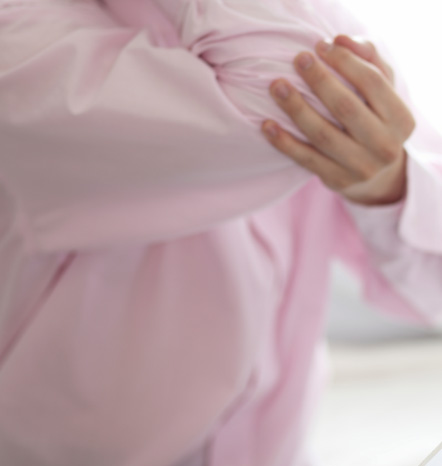
Orthopedic Surgery
Carpal tunnel syndrome
The carpal tunnel is a small passageway surrounded by bones and ligaments that belong to the wrist. When the wrist is used repeatedly, the carpal tunnel becomes thickened or the internal pressure increases, compressing the median nerve. If numbness occurs within 30 seconds with both wrists bent and touched against each other, you can have carpal tunnel syndrome.

Treatment of carpal tunnel syndrome
-
Conservative treatment
In the early stage, wrist guards are used to reduce the strain on the hands and anti-inflammatory drugs can be prescribed along with steroid local injection therapy and physical therapy combined.
-
Carpal canal release
Carpal tunnel release is a surgical procedure in which a surgeon cuts the ligament that compresses the nerve by making an incision into the part of the carpal tunnel after anesthesia applied in the palm. As a simple operation that removes only the ligament, you can use your hands 2-3 days after the operation.
DeQuervain Syndrome
DeQuervain Syndrome is an inflammatory disease caused by excessive use of the hand, which causes friction between the two tendons (abductor pollicis longus muscle and short extensor muscle of thumb) from the wrist to the thumb and the membrane that surrounds these tendons. If you feel pain when you bend your wrist with your thumb wrapped with the rest of your fingers, you may have DeQuervain Syndrome.

Treatment of DeQuervain Syndrome
-
Conservative treatment
In the early stages, you should take a break so as not to worsen the painful area. If you feel swelling or heat, ice packs can be applied to the wrist. Without heat feeling, you can try warm packs. Usually, you can see the better effect with physical therapy and medication for about a week.
-
Extracorporeal shock wave therapy (ESWT)
A strong shock wave stimulates damaged tissues and helps blood vessels to be regenerated. It also reactivates healing of damaged tendons, surrounding tissues, and bones.
Trigger finger disorder
Trigger finger disorder is a disease in which the membrane surrounding the tendon of the finger swells when you overuse your finger repeatedly. It has got its name because it makes a trigger sound when you close or open your finger as it difficult to do so. When there is constant friction in the palm, which irritates the tendon, you can feel inflamed and painful in the finger.

Treatment for trigger finger
-
Conservative treatment
At the beginning, cold packs or nonsteroidal anti-inflammatory drugs can be applied. If it is difficult to open or close your finger with a 'click' sound, feeling stuck, 1 or 2 local steroid can be injected.
-
Surgical treatment
It is a very simple operation that takes about 5 minutes in which a surgeon makes a small incision about 1cm and widens the passage in the area where the tendon is strained.

Treatment of golf elbow
In the early stages, symptoms can be improved merely with enough rest or conservative treatment. If you reduce using the elbow and take medication along with physical therapy, you can recover better.
-
Extracorporeal shock wave therapy (ESWT)
Extracorporeal shock wave therapy helps reduce the inflammatory response of the tissue, delivering a strong shock wave to the damaged tissue and induce the recovery of normal tissue so that its function can be restored and pain can be treated.
-
Injection treatment
① Steroid injection therapy: Inflammation, the biggest cause of pain, can be the most effectively treated.
②DNA injection therapy: It helps relieve inflammation and lessen pain by inducing active cell division and promoting tissue regeneration. It is a prescription drug approved by the Food and Drug Administration. The treatment period is short and the damaged tissue can be quickly regenerated.
③ Prolotherapy injection therapy: It stimulates self-healing ability and cures the damaged ligament, strengthening tissue and promoting its regeneration.
*Rarely, there may be bleeding, infection, or blood clots during surgery.





